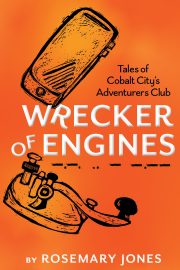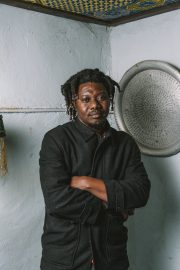A Tale of Two Art Forms
by Alexandra Elizabeth Honigsberg
It’s often said that nothing learned goes to waste. Certainly we as writers find this is true. Everything is grist for the story mill. I’ve also noticed that, as I read the bios of my fellow authors, we have chequered pasts and still tend to wear several hats. I am no exception. From those who only know me as a writer, I find that they react to the discovery that I am also a professional musician (concert violist/conductor/soprano) as if I live in some fantasy-scape and wave a magic wand in mysterious ways. In some sense, they’re right. Ask any conductor if she doesn’t think she’s God and her baton magic, at least some of the time.
So, if I can play God, why write? Good question. Any one of us can also play God as we create worlds and people and guide them as we will, hopefully, as story and characterization dictate and not merely for our own jollies. This all reminded me, not for the first time, that there’s a lot of overlap between the two art forms.
Of course, if you’re going to write in a certain world, you have to do your research. So it’s easier to write what you know, especially if a lot of people either don’t know it or fantasize about it. So many of my stories are set in places that are legend to some and a workplace for me – Carnegie Hall, the Metropolitan Opera, Lincoln Center, and the like. But I know of few people who, especially with the advent of cable TV, CDs and VCRs, haven’t seen at least a bit of one concert or don’t even listen to the car radio. So music is all around us and these places are at least somewhat familiar to us. Not so much research after all, really, even for non-musicians.
These are great places for Urban Fantasy. You have ready-made heroes and heroines, all larger than life, all wading waist-high through archetypes and dramas. It’s a full-sensory world including sound, the smell of sawdust backstage, the play of the colored stagelights, the feel of the velvet curtains and brocade costumes. It’s all right there for the asking. And characters – just read a bio of Toscanini, Horowitz, Verdi, Berlioz, or a myriad of others, and you’ll find no shortage of knights and knaves. Everything’s as close as your local PBS station, stereo, library, or video/CD store. Album notes are an endless source of tasty little tidbits on the pieces and their composers, by the way, often things the music history books would pass over. Check magazines like Opera News, too. That’s full of fun stuff. Some of the pictures are entire stories in and of themselves.
Any time you get into stories that have been staged in some way, you have opportunities for the play-within-a-play scenario that Shakespeare had such fun with in his time. And the venues have a timelessness all their own. Tchaikovsky conducted at the opening of Carnegie Hall, after all, which is more than 100 years old, as is the tradition of the Metropolitan Opera, not to mention several hundreds of years of tradition in overseas ensembles.
With language and music so inextricably linked since the dawn of humans, my musician’s ears treat the written word in much the same manner as musical notes. After all, we could make all sorts of sounds before we had a formal language. Mel Brooks’ routine in The 2000-Year-Old-Man about the first music being for communication (he called it rock music, literally), especially to warn of danger, was funny because it’s not far from the truth. And though music and stories are entertainment and life-enriching, we are, after all, trying to communicate, aren’t we?
So consider the texture and ring of certain words, the rhythm of paragraphs and the phrasing of sentences. If you can’t read/sing a sentence out loud, it probably won’t play in the reader’s head, either. As a singer will mark breath points or a string player bow changes, or a pianist strikes the keys in varying manners to articulate notes differently – smooth, rough, short, long – so we as writers need to pay attention to our ears and feed them the infinite variety that makes them happy. You might find that you have better ears then you thought you did and your prose will flow more and more be more interesting.
As for writing while listening to music, that’s very personal. For myself, when in the act of raw creation, I need silence because there’s already music playing in my head. I write, literally, with a full soundtrack playing along with the story line. I wish I were a better composer and had more time because I’ve written a lot of music along with my stories that may never get heard. But it seems to live in the prose, so I don’t feel too badly about that. Once I get to the editing/revision stage, I can listen to pieces without words or in languages I am totally ignorant of (words tend to get in the way because they’ll contradict what I’m writing and I want to sing them – I can multi-task, but that’s a bit schizophrenic, even for me). They don’t have to have the same tone as what I’m working on, as long as words don’t get in the way.
I’ve written stories inspired by songs or pieces that are very dear to me. This is tricky. If you try to remain too literal, you write yourself into a corner. But if there’s an idea you have that seems to need a bit of jump-starting or has gaps in the plot, the right music can be just the tonic it needs. A story of mine, “Duet,” had been a concept barely percolating in my head for a year or more, but one I’d really wanted to write. Within one week I played/heard concerts of Carmina Burana, Verdi’s Requiem, and some Mahler symphonies. Bingo! I had my story line and characters.
Think of what a movie or TV show would be without a soundtrack and you might get an idea of what it would be like to try to write without a hint of sound to propel things along. Sound is grounded in the real world and all sound can be music. So music/sound can give your story a more three-dimensional feel, even if you’re not a musician and it never makes it anywhere into the story descriptions. You know it’s there and the reader will feel it in the pacing of the work. The horror writers seem to have picked up on this, especially in the punk/grunge/heavy metal rock cultures that seem to lend themselves to that edge. But considering how much of opera and symphonic music is based upon folk tales and various fantasies, I’m curious that we don’t take advantage of the overlap and return the favor. And then there are all those martial and abstract soundtracks for those hard sf movies (or not-so-hard, but just as much fun – consider the Trek or Star Wars movies, Alien, 2001, or Bladerunner, just to name a few).
So go forth and enjoy those CDs and hear the music in your work. Your readers will notice and you’ll have more fun, too.
Alexandra is a professional musician and religious scholar, and has had stories and poems published in numerous anthologies, among them Dante’s Disciples, Pawn of Chaos, Angels of Darkness, New Altars, and Blood Muse.


